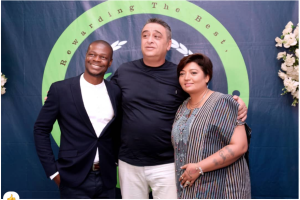

In the wake of escalating climate concerns, companies worldwide, are quick to adopt carbon neutrality pledges, positioning themselves as environmentally-conscious and responsible entities.
However, as CSR Reporters, it is our duty to scrutinize beyond the words and delve into the concrete actions taken by these companies to substantiate their commitment to achieving carbon neutrality.
The era of climate change demands more than just lofty promises; it necessitates decisive and measurable actions that contribute tangibly to reducing carbon footprints. Unfortunately, a disconcerting gap often exists between companies’ carbon neutrality pledges and the actual initiatives undertaken to fulfill these commitments.
As we investigate the credibility and impact of these carbon neutrality pledges, it becomes imperative to question whether companies are genuinely walking the talk or merely engaging in greenwashing—the practice of creating a misleading perception of environmentally responsible efforts.
Many companies proudly announce ambitious carbon reduction targets and net-zero goals, but the critical question remains: What concrete steps are being taken to realize these objectives? Are these pledges backed by substantial investments in renewable energy, energy efficiency measures, and sustainable practices?
A closer look reveals instances where companies focus more on ‘public relations,’ emphasizing their green initiatives through marketing campaigns, while neglecting the essential work needed to truly reduce their carbon impact.
To bridge this gap between rhetoric and action, companies must adopt comprehensive strategies that go beyond mere token gestures. This involves Investment in Renewable Energy, transitioning away from fossil fuels and championing the use of sustainable alternatives; Implementing energy-efficient technologies and practices within operations to minimize energy consumption and maximize output; Addressing the carbon impact embedded in supply chains by partnering with environmentally responsible suppliers and promoting sustainable sourcing practices. Also, Carbon Offsetting with Integrity which must companies must ensure that it is done with integrity, supporting verified and impactful projects; Transparent Reporting on carbon reduction progress, providing stakeholders with clear metrics and milestones plus actively engagement in advocating for policies and practices that support broader systemic change towards a low-carbon economy.
We call on companies to move beyond ‘green PR’ and embark on genuine, transformative actions that contribute meaningfully to the fight against climate change. It’s time to see tangible investments, trackable reductions, and a holistic commitment to environmental sustainability.
Ultimately, the transition to carbon neutrality demands a paradigm shift—one where companies prioritize meaningful action over mere words. The future of our planet depends not on what companies say but on what they do to reduce their carbon impact. It’s time for companies to prove that their carbon neutrality pledges are not just headlines but herald a new era of sustainability and responsibility. The world is watching, and so are we.









